"I stop every day right at the point where I feel I can write more. Do that, and the next day's work goes surprisingly smoothly." —Haruki Murakami
Have you ever been so excited about a new track that you worked on it until you couldn't stand the sound of it anymore? I've been there countless times. But what if the secret to sustainable creativity isn't pushing through to completion, but rather knowing exactly when to step away?
Support ProducerHead
If you value ProducerHead and want to support my work, consider a premium subscription (just $6 per month). Your contribution helps me maintain quality and grow the show while keeping the core content free for everyone.
The Unexpected Music Production Mentor
One of the most unexpectedly helpful books for me as a producer—and maybe as a human—is Haruki Murakami's "What I Talk About When I Talk About Running."
In it, the prolific writer (30+ published books), shares a deceptively challenging technique that requires awareness, self-control, and discipline: stopping work at the height of creative momentum. This approach requires accepting that creativity has no end. It's not about what you can do today; it's about continuing to do it because of what the doing provides.
Before: The Burnout Cycle
Before I learned this technique, my studio sessions looked like this:
Get excited about an idea and work on it to the point of physical and mental exhaustion. Hours ago, the idea had infinite possibilities and was going to break my career. Now, I can't stand to listen to it. I have to get out of this studio.
To work this way is a decision to make the process challenging and painful. The creative process offers each of us plenty of pain and challenge—why create unnecessary ones?
The Marathon Method isn't about what you produce—it's about developing a commitment to how you produce.
This is an ill-advised way to work for (at least) two reasons:
I have something else I planned to work on, and now I'm exhausted (not to mention, feeling pessimistic about my creativity).
My most recent memory of being in the studio is negative, so, not surprisingly, tomorrow's work will not go smoothly.
Studio Trauma
Studio Trauma: The creative exhaustion that occurs when we push beyond the point of diminishing returns.
A chord progression falls out of me effortlessly and all of the other parts seem to write themselves. This momentum takes me to a place where I'm jamming and writing lyrics. I'm in flow, riding that creative wave…
In the past, I would have pushed through for six more hours, desperately trying to finish the entire song structure, overthinking the lyrics, and eventually second-guessing the chord progression I had initially loved. I'd have spent the rest of the day frustrated and avoided revisiting the project.
Experience (and Murakami) have taught me to apply the Marathon Method. Once I had the core progression and initial lyrics in place and felt that creative high, I recorded a scratch track, wrote down the lyrics I had, and walked away. The next morning, I returned with fresh ears and perspective. I avoided Studio Trauma, and, less than 24 hours later, what could have felt like a dead-end continues to carry endless possibility.
What It Looks Like Now:
When I stumble upon an idea (who knows where they come from), I follow it. And when I feel that sense of euphoria and flash of excitement that seems to provide infinite energy and possibility, I stop.
Yes, I stop.
The most valuable creative decision is often knowing when to walk away.
The Outcome:
I am provided a supply of energy and optimism to begin whatever my next task is. I've gifted myself momentum to take into the other projects I have that day. If I'm recording a podcast episode, this is especially helpful (coming into a conversation frustrated about my work is not helpful).
As opposed to the previous working style: I'm exiting that studio session not because I'm beat up and exhausted, but because I chose to. And this decision leaves me with a lasting impression of excitement, energy, and curiosity to know what will happen when I revisit this idea.
Remember: This is valuable because creativity has no end. It is all based on my feelings, which cannot always be trusted for creative judgment. Negative feelings are not "bad" per se; however, they tend to impose limits, which is antithetical to your creativity. Spreading out sessions and making space an intentional part of your practice will increase the probability of an enjoyable process whose output can be judged reliably.
Your Turn: The 5-Day Challenge
"Discipline equals freedom." — Creativity thrives within boundaries.
I challenge you to try the Marathon Method for the next five studio sessions:
Start work on a new idea or continue an existing project
When you feel the creative high—that moment when everything seems to be flowing perfectly—set a 5-minute timer
When the timer ends, save your work and step away, no matter how much you want to continue
Take notes about how you feel at that moment
Return to the project the next day and record your experience
After five sessions, assess whether this approach has changed your relationship with your creative process. Did you maintain more consistent energy? Were you more excited to return to your projects? Did any solutions appear more easily after the break?
Share your experiences in the comments below or tag me in your posts about the Marathon Method. I'm excited to hear how this technique transforms your creative practice.
This has been Toru, and in a way, so are you. Peace.
P.S. If you found this approach helpful, forward this newsletter to another producer who might benefit from breaking the burnout cycle.

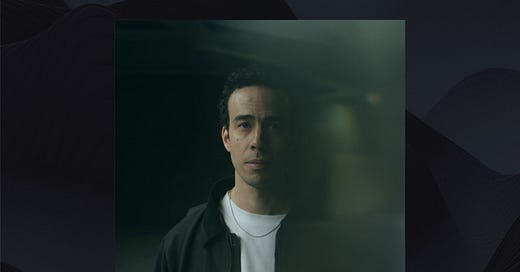






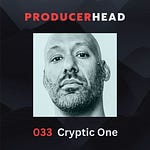
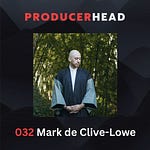
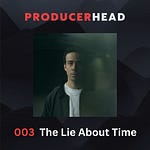
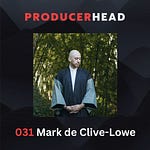
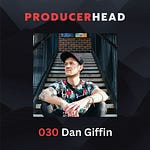
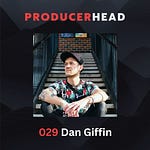
Share this post